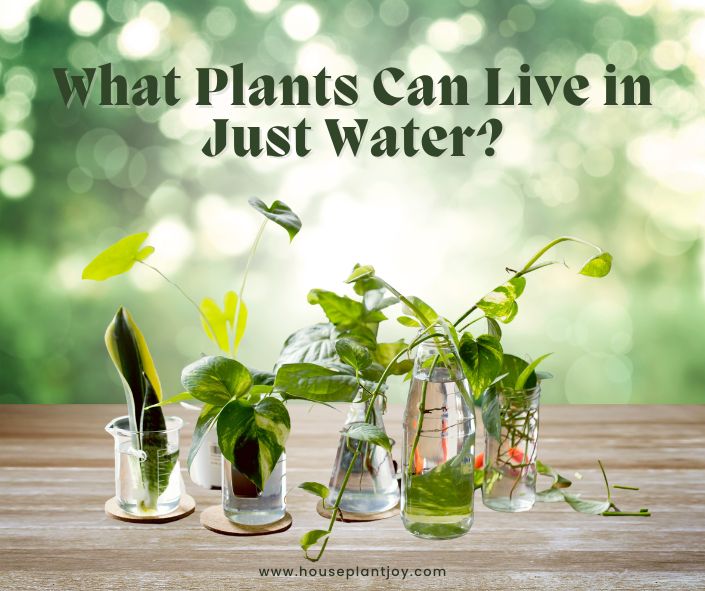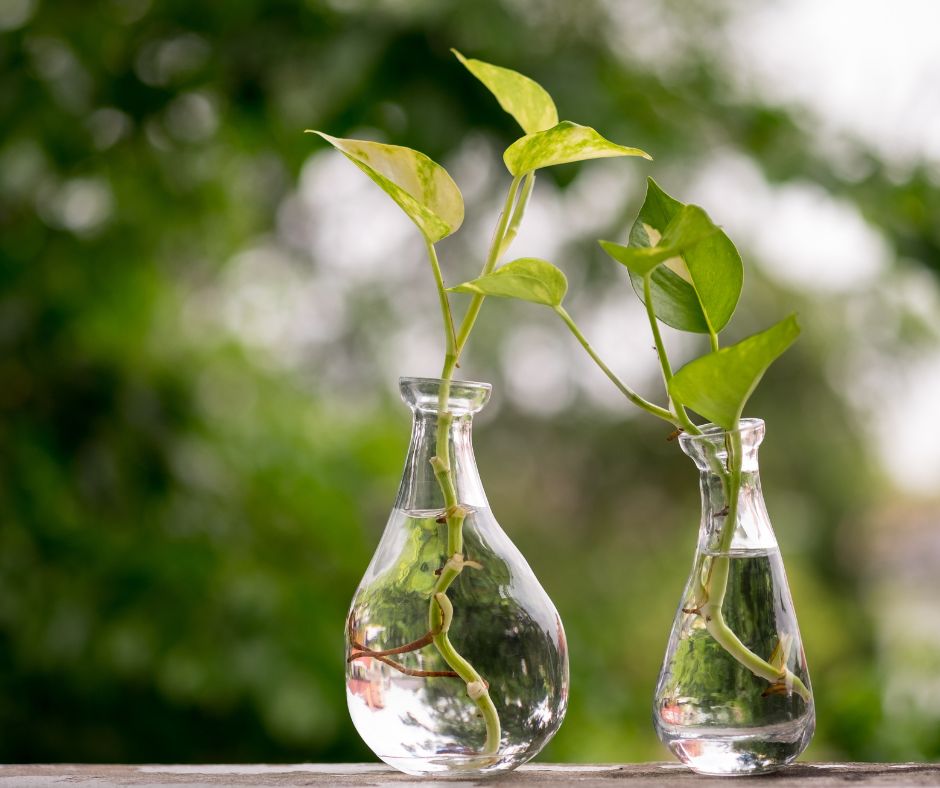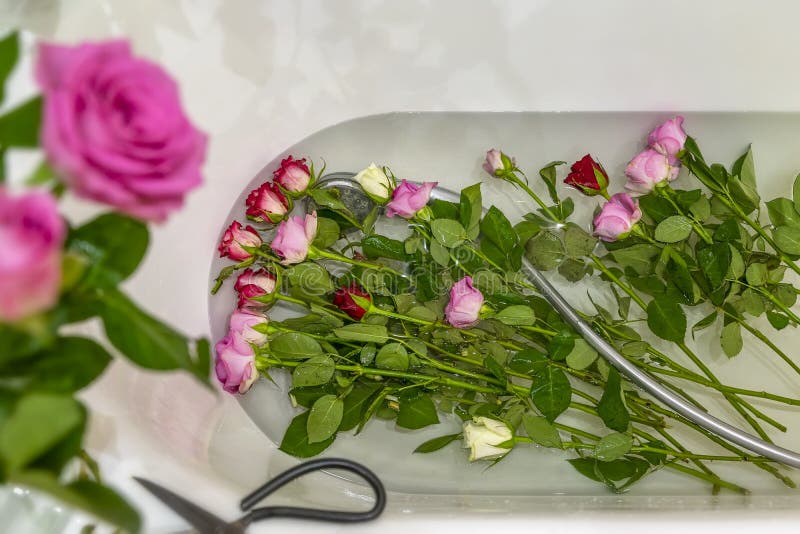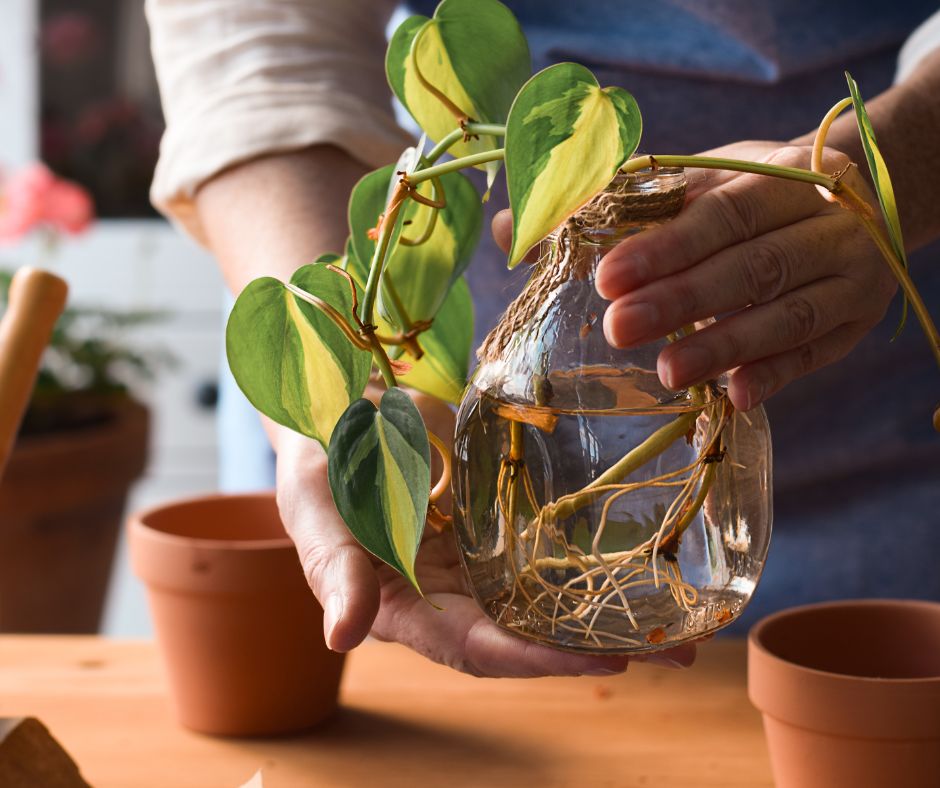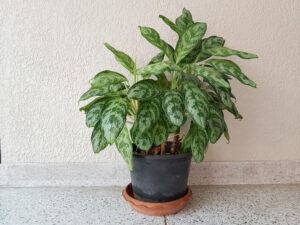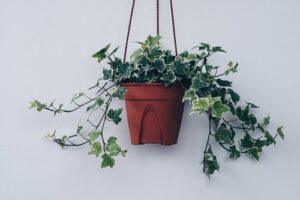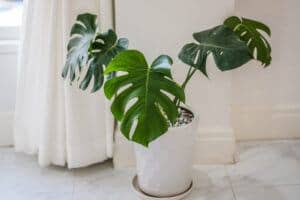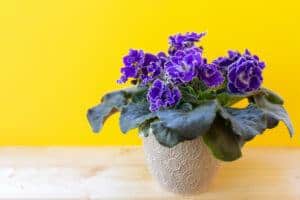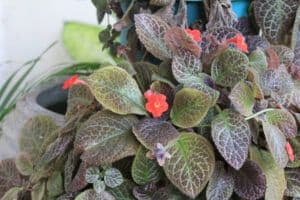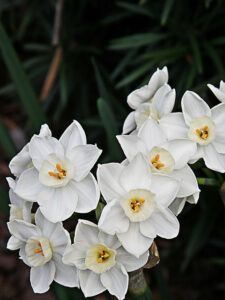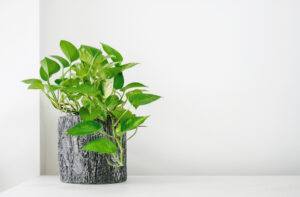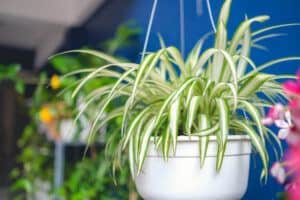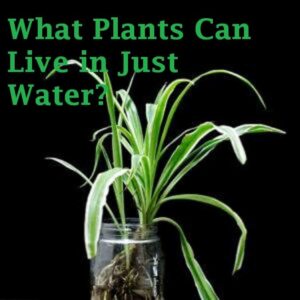HousePlantJoy is supported by our audience. When you purchase through one of our links, we may earn a small affiliate commission. As an Amazon Associate I earn from qualifying purchases. Your cost is not affected.
==================
What plants can live in just water? Many grow quite well without soil. Growing plants in water, either houseplants or an indoor garden, is an excellent activity for the beginner gardener. However, those with minimal space and those who struggle with plant watering can also adopt this treatment. Indoor plants that grow in water do not need much care. They can be grown in transparent vases and jars to use as a centerpiece.
If you want to have indoor plants that are very easy to grow in water, you have come to the correct location. Some plants do not need soil to mature, and yes, these varieties can grow in water at first without using a single ounce of soil! Here are several unique houseplants that live in water.
Growing Houseplants in Water
Growing plants in water make for more variety in arrangement and can do in almost any container that can accommodate water. While growing houseplants in water takes longer than planting them in soil, the indoor water garden can remain lush for a long time.
Any pot that can accommodate water can use to create an indoor water garden. Growing plants in bottles is a popular method, but almost any kind of waterproof container would serve, except those made of copper, brass, or lead.
Tips to Grow Houseplants Hydroponically
Growing your houseplants in water might seem strange, but the process goes back many centuries. In fact, the Hanging Gardens of Babylon represent one of the earliest examples of hydroponics.
Today, even large farms use such growing systems, albeit a bit more sophisticated. The fact is, that most plants grow well in a water-based hydroponic system. However, you need to keep a few things in mind when setting up your system.
- Use bottled spring water or well water. Most tap water contains no minerals and nutrients but does contain chlorine. Alternatively, you might catch fresh rainwater to use.
- Any glass, ceramic, or most other vase works for holding the plants. If you need to keep the plant supported in the container you choose, you might add pebbles or glass marbles for an extra decorative effect.
- Add a liquid fertilizer to the water to boost the nutrients. One that I use and highly recommend for both indoor plants and our hydroponic vegetables is Neptune’s Harvest. This organic fertilizer mixes easily and has outperformed others we have tried.
Top 8 Houseplants That Lives In Water
1. Chinese Evergreens
Because of its ease of treatment, this jewel of a plant is one of the most common houseplants. Chinese evergreen plants arise in a variety of colors and patterns, like variegated varieties. While they are tolerant of a wide range of growing conditions, they can produce better results if you meet those guidelines. Indirect sunshine or medium to low light levels is ideal for Chinese evergreen plants. You can make sure that the plant enjoys mild temperatures and some humidity anywhere you put it in your home.
Chinese Evergreen
2. Ivy Houseplant
Ivy is a perfect houseplant for both novice and seasoned gardeners because it is easy to cultivate in water. You will learn how to spread ivy in water successfully even though you are new to growing houseplants or propagation. You will develop more ivy plants for your house, greenhouse by following a few easy steps.
Ivy propagation in water is quite simple. You only need some ivy clippings, a container, and a small amount of water to bring them in. Because of its inherent potential to spread and flourish, ivy is considered an invasive plant in some states.
3. Philodendron Houseplants
Heart-leaf philodendron is the most water-tolerant of all the philodendron varieties. Keep a 6-inch splitting in a transparent glass jar or bowl in a bright partial light spot. It will continue to rise if you adjust the water every 3-4 days.
Philodendron treatment is straightforward because the plant can tell you precisely what it requires if you pay attention. Since philodendron plants respond well to indoor environments, even beginner houseplant owners will have no trouble growing them.
Philodendrons
4. African Violet Houseplants
Using a leaf to root African violets in water is the fastest and most straightforward process. You may use a leaf from your African violets or borrow one from a friend’s. It proceeds about a month for roots to form. Over time, a tiny plantlet with its crown will emerge. Locate the plant by a bright window, but keep it away from direct sunshine and other heat sources. Overheating the fragile leaf may cause it to burn or rot.
African Violet
5. Begonias Houseplant
Begonias are a common indoor herb. Few begonia houseplant species are grown for their flowers, whereas others are grown for their eye-catching foliage. To keep begonias looking their best indoors, you need a little bit of experience.
The best way to care for begonias indoors is to position them in the right place. One of the best tips for growing begonias as houseplants is to put them in a bright, indirect light environment with plenty of humidity.
Begonias often need a high humidity level to survive, which can be difficult to achieve while growing them indoors. You may also place a saucer of water near your plants, which could evaporate and produce humidity.
Begonia
6. Paperwhite Houseplants
Paperwhite narcissus bulbs may be grown in water and forced to bloom. Get a glass terrarium and fill it one-quarter with seashells and gravels for this. To secure the bulbs in place, arrange them tightly and cover half of them with these gravels. Fill the terrarium with water but not so much that it wets them. That’s it; leave them in a sunny spot for 4-5 weeks, and they’ll begin to flower. Moreover, grow Paperwhite bulbs in water with a 5% alcohol concentration for shorter, more stable roots.
Paperwhites
7. Pothos Houseplants
Pothos is a beautiful following house plant with heart-shaped green leaves. Golden pothos, the most popular pothos variety, has golden and cream shades that make it a plain yet eye-catching houseplant.
Pothos is among the most straightforward houseplants to reproduce and rise in the water! That’s right; you heard that correctly. However, you will grow your robust, low-maintenance pothos in water even though you don’t have a green thumb.
You won’t need any special fertilizers or drainage holes if you cultivate your golden pothos in glass containers filled with water. Furthermore, the plant will not expand as quickly, making it easier to handle. Moreover, it frees up space while also bringing some greenery to your life.
Golden pothos or Epipremnum aureum
8. Spider Plant
The Spider Plant is among the best adaptable and easy-to-grow houseplants. The Spider Plant is also noted for its excellent air purification properties, making it a healthy addition to every household. Spider plants, which are native to tropical and southern Africa, have a reputation for being almost tricky to burn. Consider the fact that spider plants prefer colder temperatures when caring for them. Cutting spider plants back to the base will help them thrive.
Spider Plant
In Summary, What Plants Can Live in Just Water?
The truth is most plants that require regular watering grow just fine without soil.
If you like to keep plants indoors, keep the plants that live in the water if you are a new gardener. These small houseplants take up very little space, but they look great in a place. Try to select one of the plants we have mentioned, and then let us know in the comments your experience.
Ready to give your Boston Fern a fresh start? Follow these simple steps on how to re-pot a Boston Fern and watch it thrive in its new home.
FAQs
Can any plant survive solely in water without soil?
Yes, there are several plant species that can thrive solely in water without the need for soil. These plants are commonly known as hydroponic or aquatic plants. They have adapted to absorb essential nutrients and moisture directly from the water, making them excellent choices for water-based gardening. Some popular examples include water hyacinth, water lettuce, and duckweed. These plants not only add a touch of greenery to your water features but also contribute to maintaining water quality by absorbing excess nutrients.
How do plants without soil receive the necessary nutrients to grow in water?
Plants that grow in water have evolved special adaptations to absorb the necessary nutrients directly from their aquatic environment. They employ different strategies depending on the plant species. Some plants, like water hyacinth, possess specialized structures such as roots or modified leaves that absorb nutrients dissolved in the water. Others, like duckweed, extract nutrients from the water through tiny root-like structures called rootlets. Additionally, many water-based gardeners provide specific hydroponic nutrient solutions to ensure optimal growth and development for their aquatic plants.
Can I grow plants in just plain tap water, or do I need to make special preparations?
While some plants can tolerate tap water, it’s generally recommended to make a few preparations to ensure successful growth. Tap water often contains chemicals like chlorine and chloramine that can be harmful to aquatic plants. To make it suitable for water-based gardening, you can allow the tap water to sit for 24 hours in an open container. This allows chlorine to dissipate naturally. Alternatively, you can use a dechlorinator or water conditioner specifically designed for aquariums or hydroponics to remove harmful chemicals. Additionally, some plants may benefit from added nutrients or supplements to thrive optimally in tap water.
Dive into the World of Aquatic and Houseplants!
Join us on social media for captivating content, product reviews, and a passionate community dedicated to indoor and outdoor plants, including aquatic beauties, and houseplant home design.
Facebook: Engage with our thriving community and explore the wonders of aquatic and houseplants.
Instagram: Immerse yourself in stunning photos of aquatic and houseplants, and find design inspiration for your indoor and outdoor spaces.
Pinterest: Unlock endless ideas, tips, and tricks for creating breathtaking environments with aquatic and houseplants.
Twitter: Stay up to date with the latest trends, connect with fellow plant enthusiasts, and discover new ways to enhance your aquatic and houseplant experience.
Experience the joy of aquatic and houseplants! Follow us on Facebook, Instagram, Pinterest, and Twitter. ??

